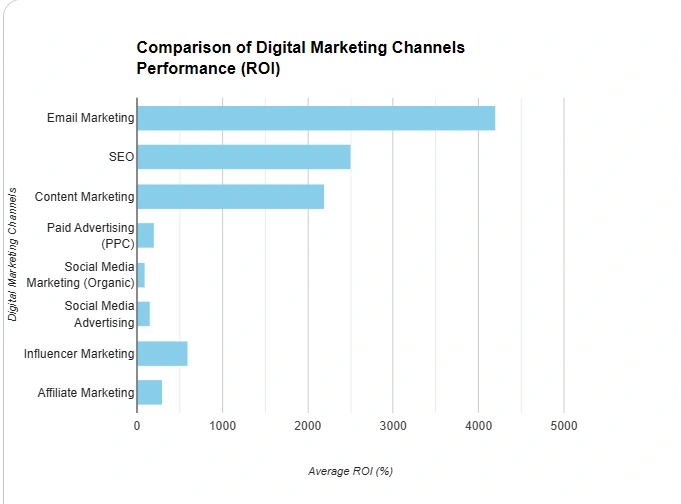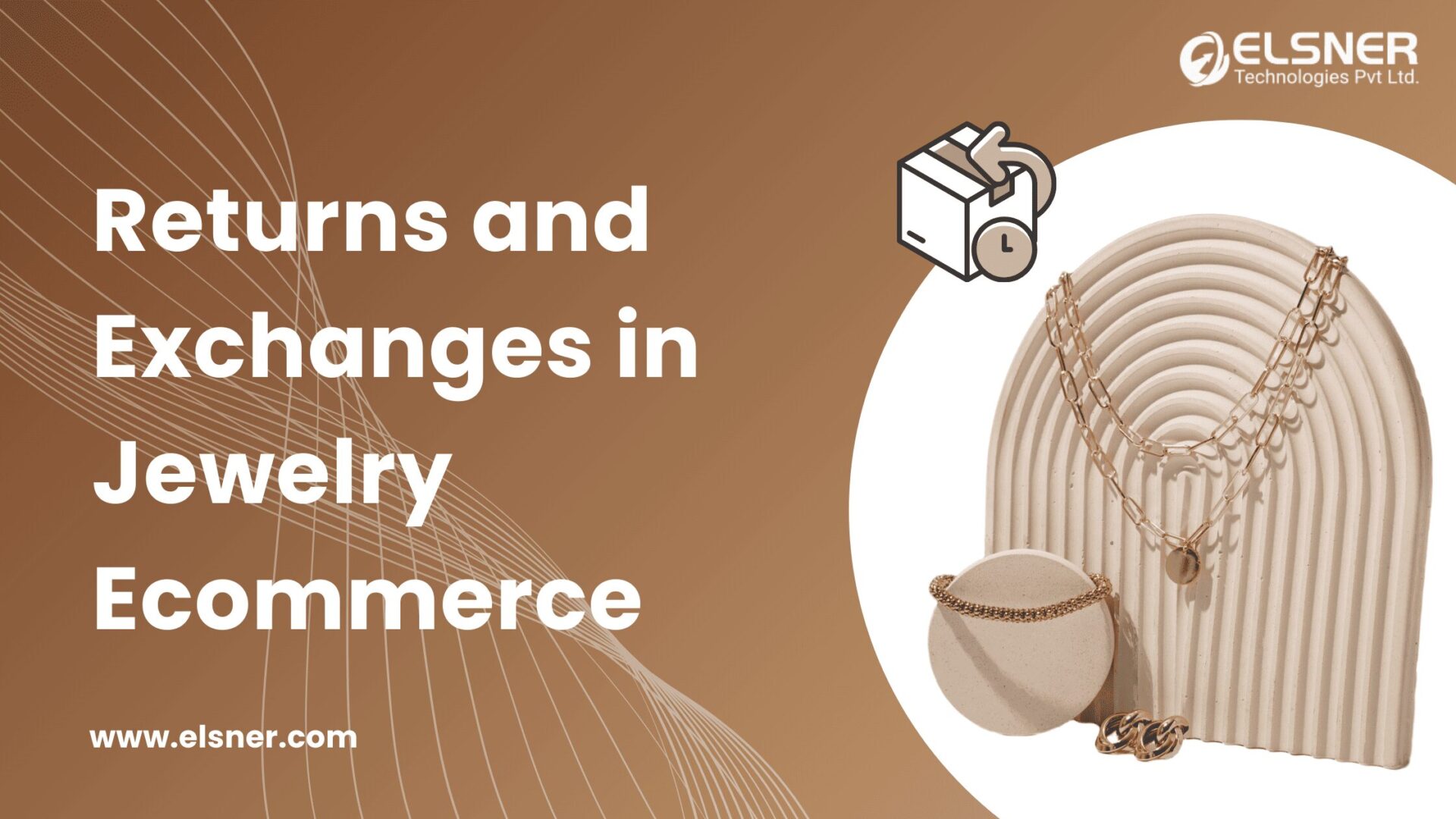- What is the demand of consumers in the Jewelry Market?
- 1. Customized Jewelry as compared to the mass produced items
- 2. Ethical Sourcing to make an environmental impact
- 3. Unique craftsmanship to highlight every element of the jewelry
- 4. Affordable Luxury and Accessible Price Points
- 5. Trend-Driven Designs that appeal trend conscious buyers
- 6. Online Shopping and Digital Presence
- 7. Occasion-Based Purchases
- Tips to Scale your jewelry brand to make it profitable
- Offer a diverse product line
- Make decent use of Digital Marketing and Ecommerce to promote your brand
- Set new Pricing and Sales Strategies
- Invest more in Brand Building activities
- Enhance Customer Experience and Retention
- Monitor Financial Metrics and Optimize Costs
- Explore New Markets and Distribution Channels
- Wrapping Up
Intricate and delicate jewelry are eye candy, people want to look at jewelry that presents itself well. The global jewelry market was valued at around $224.39 billion in 2023 [Fortune Business Insights]. Predictions suggest it will reach $343.90 billion by 2032, reflecting a steady growth of nearly 5%. A jewelry website design company can help you match these numbers by strategically investing in your online business.
Imagine not having the best way to manage your jewelry business, when the numbers in the future predict such a massive growth. Multiple influencers start small businesses for jewelry out of passion but do not have the expertise to scale it further to gain a static client base. The same goes with larger scale businesses, the offline market has lost a lot of customers, but to get your customers to walk into your online store, you need to understand what the market needs.
Jewelry business owners are trying to shift their businesses online, they specifically select Jewelry ecommerce themes that are visually appealing and deliver aesthetically pleasing looks.
What is the demand of consumers in the Jewelry Market?
The jewelry market is diverse and a lot of trends affect it. Some of these being cultural significance, fashion trends, and economic conditions. Let us take a look at what are the factors contributing to the demand of customers in the jewelry market.
1. Customized Jewelry as compared to the mass produced items
In today’s market, consumers are increasingly seeking personalized and unique jewelry pieces. They want items that reflect their personal style, milestones, and stories. This trend is driven by a desire for individuality and a shift away from mass-produced items. Offering customization options, such as engraving, bespoke designs, or the ability to choose specific materials and gemstones, can significantly appeal to this demand.
2. Ethical Sourcing to make an environmental impact
Consumers are becoming more conscious of the ethical and environmental impact of their purchases. In the jewelry ecommerce development industry, this translates to a growing demand for sustainably sourced materials, such as conflict-free diamonds and recycled metals. Brands that can transparently demonstrate their commitment to ethical sourcing and sustainability practices are likely to resonate with this segment of the market.
3. Unique craftsmanship to highlight every element of the jewelry
While fashion trends can be fleeting, there is a consistent demand for high-quality, well-crafted jewelry. Consumers are willing to invest in pieces that are durable and timeless, often viewing them as heirlooms or valuable assets. Highlighting the quality of materials, craftsmanship, and the design process can attract discerning buyers who prioritize longevity over price.
4. Affordable Luxury and Accessible Price Points
While luxury jewelry remains in demand, there is a notable trend towards affordable luxury—pieces that offer the look and feel of high-end jewelry at more accessible price points. This trend is particularly popular among younger consumers, who may not have the disposable income to invest in traditional luxury brands but still seek quality and style. Offering a range of price points can help brands tap into this broad market.
5. Trend-Driven Designs that appeal trend conscious buyers
Fashion-forward consumers often look for jewelry that reflects current trends and innovative designs. Keeping an eye on fashion trends, popular culture, and influencer endorsements can help brands stay ahead of the curve and offer pieces that appeal to trend-conscious buyers. Limited edition collections and collaborations with designers or celebrities can also create a buzz and drive demand.
6. Online Shopping and Digital Presence
The convenience of online shopping has made a strong digital presence essential for jewelry brands. Consumers are increasingly comfortable purchasing jewelry online, provided there are detailed product descriptions, high-quality images, and customer reviews. Offering virtual try-on features, comprehensive size guides, and flexible return policies can enhance the online shopping experience and build consumer trust.
7. Occasion-Based Purchases
Jewelry is often purchased for special occasions such as weddings, anniversaries, birthdays, and other significant milestones. Understanding the demand for specific types of jewelry for these occasions can help brands tailor their offerings and marketing strategies accordingly. For example, engagement rings, wedding bands, and anniversary jewelry are perennial favorites in the market.
Tips to Scale your jewelry brand to make it profitable
Jewelry Brands have already made an impact in the market and it is very difficult to make consumers switch to an all-new jewelry brand. Customers place their trust in brands and that is all because the brand constantly puts their customers above everything else. Let us take a look at what can be done to make sure your jewelry brand too reaps profits and how can a jewelry Ecommerce development company help.
Offer a diverse product line
Expanding your product range can attract a broader audience and increase sales. Consider adding complementary items such as watches, accessories, or different styles of jewelry (e.g., minimalist, vintage, or statement pieces). This diversification can cater to various tastes and occasions, providing multiple entry points for customers.
Product line diversification example

Make decent use of Digital Marketing and Ecommerce to promote your brand
A strong online presence is crucial for scaling your jewelry brand. Utilize digital marketing strategies such as social media advertising, search engine optimization (SEO), and influencer partnerships. Ecommerce platforms provide a global reach, enabling you to sell to customers worldwide.

Set new Pricing and Sales Strategies
Setting the right price is critical for profitability. Conduct market research to understand the pricing strategies of competitors and determine your brand’s value proposition. Implementing tiered pricing, discounts for bulk purchases, or limited-time offers can incentivize sales.
Pricing Strategy Comparison

Invest more in Brand Building activities
Building a strong brand identity can differentiate your jewelry brand in a crowded market. Focus on storytelling, brand values, and customer experience. Consistent branding across all touchpoints—from packaging to social media—can build trust and loyalty.
Enhance Customer Experience and Retention
Customer satisfaction and loyalty are key to long-term profitability. Offer exceptional customer service, easy returns, and loyalty programs. Collect and act on customer feedback to continually improve your offerings.
Customer Retention Strategies

Monitor Financial Metrics and Optimize Costs
Regularly track financial metrics such as profit margins, customer acquisition cost (CAC), and lifetime value (LTV). Analyzing these metrics helps identify areas for cost reduction and efficiency improvements, such as optimizing supply chain management or renegotiating supplier contracts.
Explore New Markets and Distribution Channels
Expanding into new geographic markets or distribution channels (e.g., pop-up shops, and partnerships with retailers) can drive growth. Conduct market research to identify regions with high demand for your products and tailor your marketing strategies accordingly.

Wrapping Up
Scaling a jewelry brand requires a multifaceted approach, focusing on product diversification, digital marketing, pricing optimization, brand building, customer experience, financial monitoring, and market expansion. By implementing these strategies and using real-time data to inform decisions, you can position your brand for sustainable growth and profitability.

About Author
Harshal Shah - Founder & CEO of Elsner Technologies
Harshal is an accomplished leader with a vision for shaping the future of technology. His passion for innovation and commitment to delivering cutting-edge solutions has driven him to spearhead successful ventures. With a strong focus on growth and customer-centric strategies, Harshal continues to inspire and lead teams to achieve remarkable results.




